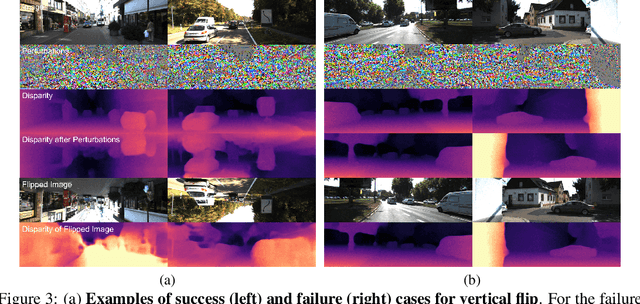Targeted Adversarial Perturbations for Monocular Depth Prediction
Paper and Code
Jun 12, 2020



We study the effect of adversarial perturbations on the task of monocular depth prediction. Specifically, we explore the ability of small, imperceptible additive perturbations to selectively alter the perceived geometry of the scene. We show that such perturbations can not only globally re-scale the predicted distances from the camera, but also alter the prediction to match a different target scene. We also show that, when given semantic or instance information, perturbations can fool the network to alter the depth of specific categories or instances in the scene, and even remove them while preserving the rest of the scene. To understand the effect of targeted perturbations, we conduct experiments on state-of-the-art monocular depth prediction methods. Our experiments reveal vulnerabilities in monocular depth prediction networks, and shed light on the biases and context learned by them.
 Add to Chrome
Add to Chrome Add to Firefox
Add to Firefox Add to Edge
Add to Edge